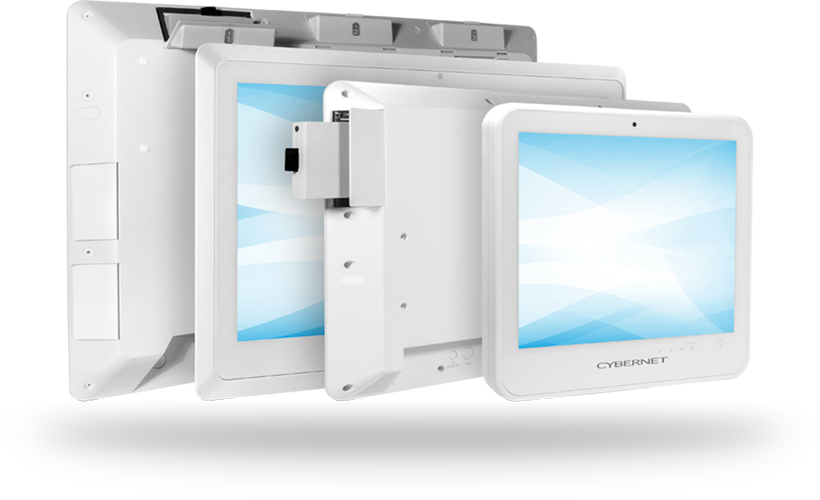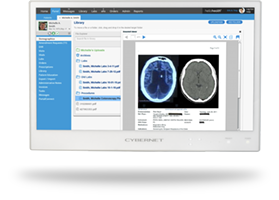Medical coders and billers are unsung heroes in healthcare. While coders ensure providers' diagnostic and procedural notes are translated into the correct codes for tracking, billers process billing paperwork so the group receives payments from insurance companies for services rendered. Medical computers have been specially designed so that coders and billers can complete their essential tasks within the constraints of the healthcare industry.
- Basic Code: What is Medical Coding and Billing?
- Why Your Computer Matters in Medical Coding & Billing
- Key Factors to Consider When Buying a Computer
- Why Medical PC is Best for Coding and Billing
Basic Code: What is Medical Coding and Billing?
Medical coding and billing involve reviewing medical documents for record-keeping and insurance payments. While usually grouped as one occupation, they are actually two distinct specialties.
Medical coders perform medical coding. They spend their shift reviewing providers' notes from sources like electronic medical records (EMR) and looking for items like disease names, medical conditions, and even instruments used. Each item is assigned a standard code drawn from sources such as Current Procedural Terminology, International Classification of Diseases, and Healthcare Common Procedure Coding System.
Unsurprisingly, medical billers do medical billing. They review the codes from coders to generate billing claims for insurance companies. Billers must submit the correct codes, as companies deny payment requests due to errors. Billers are also responsible for investigating these denials and getting payment from patients for anything not covered by insurance.
Large healthcare groups can have separate medical coding and billing departments and staff. Given the two's intertwined nature, many typically hire workers skilled in both specialties.
Why Your Computer Matters in Medical Coding & Billing
The digital transformation of healthcare has largely replaced the paper-and-pencil processes once used for coding and billing. Computers like all-in-one medical PCs (AIO) provide many advantages.
Multitasking Demands
Medical and billers will likely be juggling multiple applications during a typical workday: EMR systems, web browsers, coding and billing software, and office suites, to name a few. A properly set-up medical AIO has the power to do so and more.
Data Security
Patient health information (PHI) is protected by numerous legal regulations, like the Health Insurance Portability and Accountability Act (HIPAA). Properly equipped computers will come with the right data security features in healthcare to protect PHI from unauthorized users and cyberattacks.
Efficiency and Accuracy
Computers used for medical and coding have been optimized with the right combination of hardware and software to provide quick loading times and seamless transitions between applications. Coders and billers can then process more claims and look up codes faster while ensuring errors are kept to a minimum.
Remote Work Capabilities
Today, many medical coding and billing tasks are done off-site. Coders and billers should ensure their computers have the capacity to work effectively from any location. This includes encryption and other cybersecurity features to protect PHI.
Future-Proof
Technology evolves quickly. The healthcare industry, though, moves to a different product life cycle than the consumer market, keeping its medical equipment and computers for longer periods of time. This maximizes their return on investment (ROI), which is important given the tight budgets of most medical groups. A low failure rate is essential for computers used for coding and billing.
Key Factors to Consider When Buying a Computer
Healthcare IT (HIT) should ask themselves the following when equipping the medical group's medical coders and billers with computers.
Which Operating System (OS)?
An operating system manages the computer's hardware and software. It also acts as the human machine interface (HMI) for the medical coder and biller to interact with the computer. Windows is the most common OS; it's not only compatible with most medical coding and billing software, but it's also familiar to most users due to its popularity in the consumer market.
Which Processor (CPU)?
The "brain" of the computer. For medical coding and billing, the CPU needs to be able to handle multiple applications simultaneously without slowing down or stuttering. The Intel processors for business and consumer electronics are a solid choice for coding and billing PCs.
How Much RAM (Memory)?
A computer's RAM allows it to run multiple programs at once. This includes not only coding and billing software, but also browser tabs, office suites, and chat software. Computers for coding and billing should have enough memory to run many applications smoothly and without slowdown. 16GB of RAM is a good amount for such optimal performance.
What's the Best Local Storage System (SSD and HDD)?
Most computers store their OS, applications, and files locally on their hard disk (HD). HIT will have to compare HDD (Hard Disk Drive) vs SSD (Solid State Drive) and decide which one is the best. While HDDs are less expensive, they are slower and more prone to failure due to moving parts. SSDs are faster, leading to quicker boot times and faster application loading and processing. They're also more reliable since they have no moving parts that may break.
Best Monitor / Display?
Since coder and billers spend virtually all their work time in front of their computer, HIT should ensure their computer screens provide sharp text while allowing content viewing without excessive scrolling. The display should be a minimum of 17 inches, whether the PC is an AIO or a medical-grade monitor. However, 19 inches is preferable (and no user will ever say no to even larger displays like 20-22 inches!).
How to Keep PHI Secure (Security Features)?
Implement user authentication best practices, such as Imprivata healthcare Single Sign-On and Trusted Platform Modules, to ensure that only authorized coders, billers, and other medical professionals have access to PHI.
Why Medical PC is Best for Coding and Billing
Medical coders and billers spend long hours in front of a computer screen, dealing with many electronic files. Because they're working in a medical office or facility like a hospital, they need to use PCs built to handle the setting and its unique demands. Medical PCs are the best computers for medical coding and billing for the following reasons:
Reliability
Medical coders and billers use specialized software or applications to perform their numerous duties. Their PCs must be reliable, as slowdowns and computer crashes could affect hours of highly precise work.
Medical computers are built from the ground up for such high reliability, which is unsurprising since such a breakdown in hospitals can lead to a life-or-death matter. Some of the features to look out for in highly reliable PCs include:
- Fanless cooling design: Fanned cooling systems, such as those used in HDDs, have moving parts that can break and shut down the computer entirely. PC cooling solutions such as fanless cooling pose no such risks. Also, they're silent during operation and won't interrupt the employee's concentration.
- IP65 front bezel: The screen is sealed against dust and fluid, protecting the PC's interior from accidental spray by the cleaning crew or spilled coffee during employee breaks.
Safe Screen
As mentioned earlier, medical coders and billers spend hours in front of their monitors. Computer vision syndrome or digital eye strain may result from too low brightness, resolution, or both from off-the-shelf PCs and monitors. Medical PCs and medical-grade monitors, developed for monitor brightness conditions found in the operating theatre, may help avoid such eye problems. Coders and billers suffering from screen glare from indoor lights and sunlight can protect their eyesight with an anti-glare screen.
Privacy from Non-authorized Eyes
Regarding protection, coders and billers work daily with highly sensitive patient data. Privacy filters in healthcare can protect it by obscuring screen views from any angle except directly.
Ergonomics for Well-Being
The long hours at a computer can affect coders' and billers' health with back strain and repetitive injuries like carpal tunnel. Computers can improve employee ergonomics in healthcare or well-being in work environments in several ways. As discussed above, eyestrain can be avoided with a correctly lit screen. A light and compact design found in many All-in-Ones makes it a breeze for users to position their PCs exactly for comfort. Finally, ports for peripherals like headphones should all be easy to reach and use without strain in well-designed medical AIOs.
Make Medical Coding and Billing Easy Through Cybernet PCs
Medical coders and billers interpret providers' records and notes into codes for various purposes, such as payment for services rendered. Computers must be built from the ground up to handle the demanding work and sometimes harsh healthcare environments.
Contact the team at Cybernet Manufacturing if you are looking for the best computers for your medical coding and billing departments. Team members will be happy to discuss the numerous features of our All-in-One medical panel PCs and business computers, highlighting why they're superior to off-the-shelf brands.

